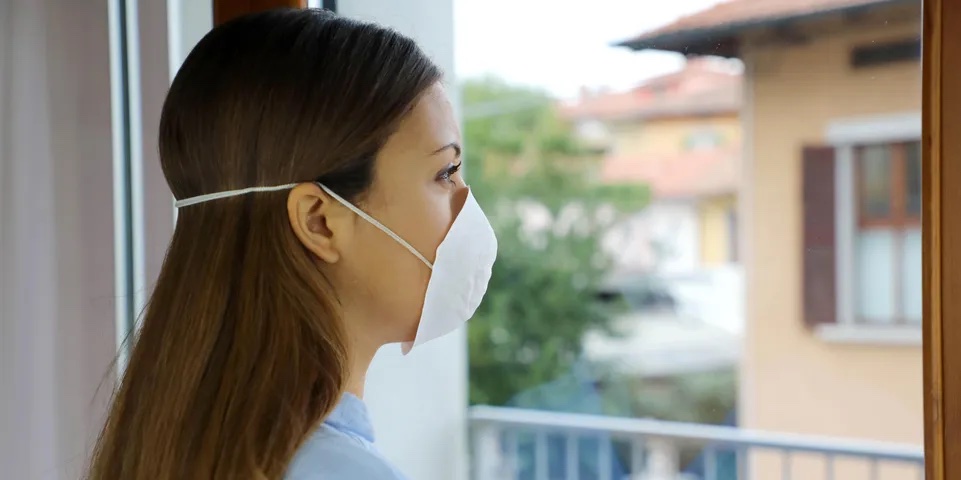
April 6, 2020
Self-quarantine, a voluntary separation from those we love the most. “We are asking our patients who we believe may have been exposed to the virus to avoid “close contact” with others to prevent the spread of disease. People are put in quarantine when they are not currently sick, but have been or may have been exposed to Coronavirus disease. This can help stop the spread of the disease,” explains Sheldon Chaffer, MD, Coryell Health Nephrologist, Vice Chief of Staff and Dialysis Center Medical Director.
What exactly is “close contact?”
It’s defined as being within approximately 6 feet (2 meters) of someone with COVID-19 for a prolonged period of time. That includes if you are living with, visiting or sharing a healthcare waiting area or room with someone with COVID-19. Or if you have been coughed on by someone with the disease. “Doctors who intubate patients can get a higher number of virus particles, increasing the severity of the disease. The closer you are, the more particles you are exposed to, the worse symptoms you can have, resulting in more severe disease to those infected. Patients who have diabetes alone will have more problems, that is why we, at Coryell Health, are following all patients we have identified as being possibly infected,” says Chaffer.
Could it really be deadly for the young and healthy?
Some citizens may be more vulnerable, but this a brand new strain. “This is a new virus that none of us have any immunity to and that fact is important. When we had H1N1 sweep the nation in 2009, that was a huge problem, but some of us had immunity. COVID-19 is so new that how an individual will respond is unpredictable. We need to slow it down so we can manage it. If you’re one of the individuals that are severely affected, you will need an ICU bed,” adds Chaffer. “Most of the time if you have the virus you do just fine with fluids and over the counter meds to keep your fever down and relieve your symptoms. This Coronavirus is a new strain of a virus that none of us are immune to, so everyone is at risk.”
Do I have to quarantine when advised to do so by medical staff?
“If you get asked to quarantine, we are protecting you and others because we suspect that you may have the virus and could infect others. We support the measured responses of our local, state and federal governments to isolate in place, maintain social distancing, and to limit our travel to the best of our ability. So far the City of Gatesville Coryell County has not issued a “shelter in place” directive at the current time, but if more individuals do not voluntarily take measures, the disease will spread.” Coryell staff will be in regular contact with any patients suspected of having the virus.
Quarantines may be used during:
- Outbreaks: When there’s a sudden rise in the number of cases of a disease.
- Epidemics: Similar to outbreaks, but generally considered larger and more widespread.
- Pandemics: Larger than epidemics, generally global in nature and affect more people.
What’s the difference between isolation and quarantine?
While isolation serves the same purpose as quarantine, it’s reserved for those who are already sick. It keeps infected people away from healthy people to prevent the sickness from spreading.
Don’t let your health decline while self-quarantine, call Coryell Health Medical Clinic at (254) 865-2166 and request a telehealth appointment for medical maintenance. If you are concerned or think you may have Coronavirus, please call our 24/7 Respiratory/COVID-19 Hotline (254) 248-6263 or take our screening tool https://coryellhealth.org/covid-19-screening.
“One unique layer of how we will successfully meet this challenge involves our mutual good citizenship.”
– Sheldon Chaffer, MD.
 Skip to content
Skip to content
